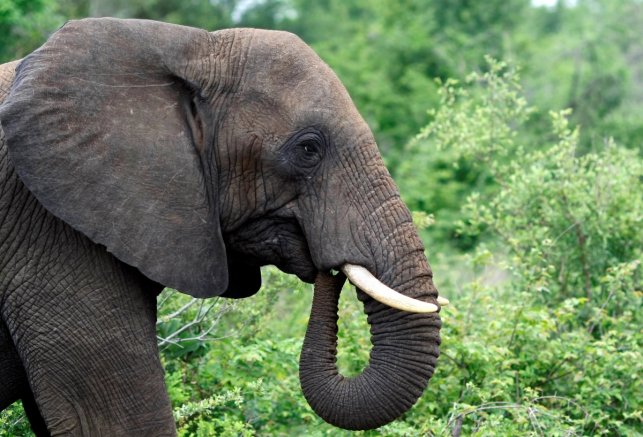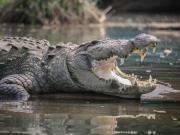
Carcasses of two rare wild elephants poached for ivory have been found by wildlife rescue workers near Segama River in Malaysia's Kawag Forest Reserve. While bones of the fist bull elephant were found on 27 December, the second one was discovered on the New Year's Eve.
The second elephant that was killed for its ivory tusks was later identified as Sabre – an adult male bull elephant with rare sabre tusks. "We found the remains of Sabre on New Year's Eve, with the satellite collar next to the skull," said Danau Girang Field Centre Director Benoit Goossens, according to Channel News Asia.
"We were obviously wrong. In the space of a month, Sabre and another large bull were killed by poachers for ivory, both carcases were found 1,500m from each other, although the killings did not happen at the same time," he added.
The officer said that Sabre was rescued from a plantation near Tawau in October 2016 and was released into the forest near Danum after he was fitted with a satellite collar. He was expected to be safe in the reserve. However, the satellite data revealed that Sabre was killed on Nov 21, 2016.
"On the day China banned ivory trade, we get two of our precious elephants murdered for their ivory. Our elephants are already threatened by habitat loss, development such as the planned road/bridge in Sukau-Kinabatangan. And if we add poaching for ivory, I don't give many years for the species to become extinct," said Goossens, as reported.
"We are ready to provide all necessary information to the investigators and to the police. I believe that this is the work of a professional hunter and trader," he added.
Wildlife veterinarian from the Wildlife Rescue Unit, Dr Pakeeyaraj Nagalingam, who helped rescue and relocate Sabre, expressed his grief. He said there are no words to describe his sadness. "The relevant authorities who are responsible for enforcement of illegal wildlife poaching and other illegal activities must work harder and smarter if we want to conserve our wildlife in Sabah," he said while adding that Sabah is no longer safe for any tuskers.








